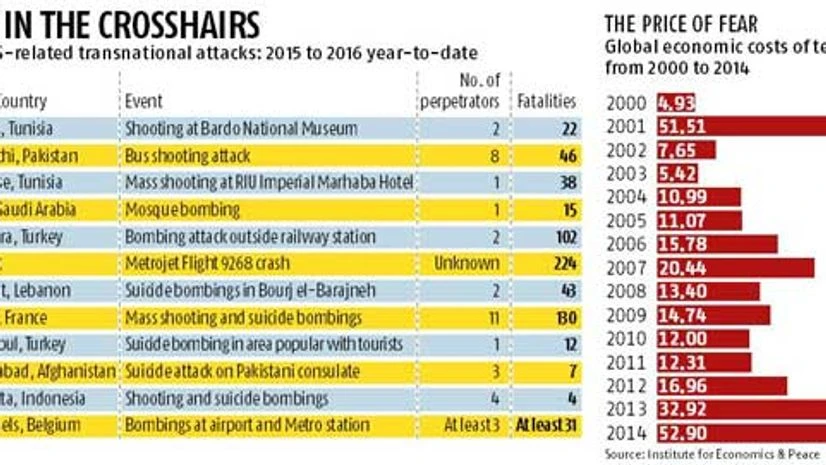An increase in global political uncertainty has led to a rise in political violence insurance covers being taken by Indian companies. These policies are taken by firms that have investments in foreign markets and exposure to such risks.
Ketan Kale, practice leader-credit, political & security risk, JLT Independent Insurers Brokers, said Indian firms are increasingly coming forward to insure their assets globally, especially in regions such as West Asia and Africa. While proposals for covers in volatile markets are not denied, premia are comparatively much higher — by as much as 100-600 per cent.
JLT Independent recently offered such a policy to a pharma client for Yemen. It was a $10-million cover for political violence.
Sanjay Datta, chief underwriting & claims, ICICI Lombard GIC Ltd, says there has been a good demand for these products. “Capacity is not a problem since we have a terrorism pool in place. This pool size may increase to Rs 2,000 crore from Rs 1,500 crore.”

Threats from Islamic State militants, the Syrian conflict, violence by Boko Haram and the migrant crisis in Europe are among the recent risks worrying companies. A recent newsletter on terrorism by global insurance broker JLT has said that traditional terrorism policies were designed to protect against terrorist events where property damage was a major loss component and business interruption a direct consequence of the physical damage sustained during an attack. This is no longer the case, it has added. “Evidence that insurance is absorbing only a fraction of the economic impacts that have followed recent terror attacks indicate the (re)insurance sector has been slow to respond to evolving risk dynamics and current products are not meeting the needs of corporations,” it said.

)
